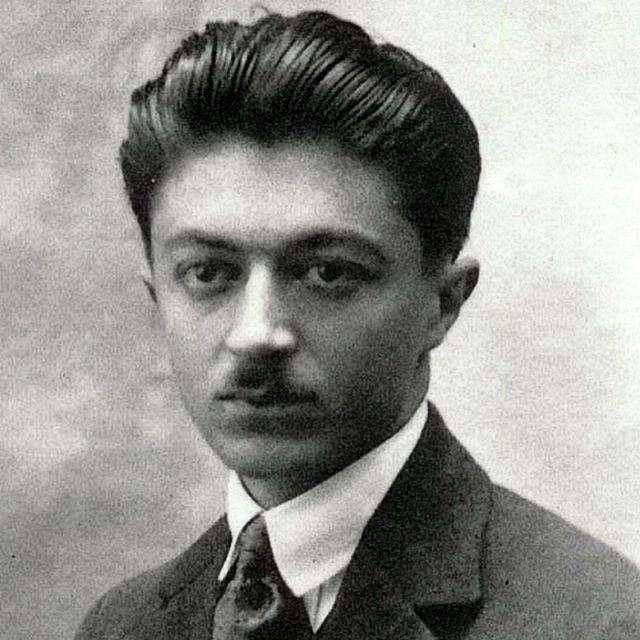For those of us who do not suffer from mental illness, it’s hard to imagine the sufferings of those who do. The more we go back in time the less understanding there was about mental illness. Most people suffered in silence fearing demonisation and ostracisation. PTSD was only diagnosed after WWI when soldiers returned from the front who were psychologically damaged behaved differently. The term which was used to describe their behavior was ‘shellshock’. Now we know people with traumatic experiences could develop PTSD.
During the time when Hedayat was active as a writer the study and treatment of mental illness were just beginning to gather momentum. The Vienna Ambulatorium (Clinic) was established in 1922 and the Vienna Psychoanalytic Institute was founded in 1924 under the directorship of Helene Deutsch. Ferenczi founded the Budapest Psychoanalytic Institute in 1913 and a clinic in 1929. It was in 1911 that the term schizophrenia was first used by Swiss psychologist Eugene Beuler. It was only in 1931 that Henri Ey, along with other French psychoanalysts formed the Société Psychanalytique de Paris.
If Hedayat’s mental illness was unbeknown to others its suffering was very real of himself. He attempted suicide twice and finally ended his life. People like Hedayat, especially those without much financial resources had nowhere to turn to. April 1930, only some weeks before Hedayat left Paris, Zelda Sayre Fitzgerald ( the wife of F.Scott) suffered a mental breakdown and was committed to the Malmaison Clinic outside Paris. A few years before that Hedayat’s first unsuccessful suicide attempt should have raised enough alarm for people who knew him to seek professional help for Hedayat. But it was forgotten and he had to push on in life regardless.
There has not been enough sympathy or understanding about Hedayat’s mental condition even from the people who admired him and his writings, He’s been labeled as a ‘depressed’ person who whinged and whined and couldn’t be happy, whether he was in India, Tehran or Paris.
Hedayat would be diagnosed with clinical depression today. Perhaps even bipolar. The sufferings that are inherent in any of these mental diseases are immense.
When mental sufferers make a decision to end their life is to end their unbearable suffering as well. In recent years we have seen many famous people with very satisfying careers that have committed suicide. They were not able to find a cure from the array of medication and treatments available to them.
It is clear from Hedayat’s writings that he had the highest regard for life. A vegetarian, he penned an essay to convince people to abstain from eating meat and end the sufferings of so many innocent creatures. His short story Stray Dog is a compassionate narrative of a dog suffering in a Muslim society hellbent to harm the poor animal as a religious duty. His empathy with the dog is as humane as a piece of writing can get, it’s almost as if Sa’di’s spirit (Persian Poet) was incarnated in Hedayat when he wrote that story.
Hedayat was not happy, not because he didn’t know how to be happy but because his mental illness did not allow him to be happy and live a normal life. It is easy for a mental sufferer to feel that life has dealt him or her a bad hand and there is no light at the end of the tunnel. Hedayat’s creative mind, however, used his condition for his artistic expression, his disappointments with his culture and society into critical and satirical writings that questioned many tradition and beliefs that he deemed as superstitious and inhumane. It’s a miracle that he lived as long as he did consider his immense mental suffering and the wretched circumstances that reduced him to a person far beneath his dignity,
Hedayat self-medicated with alcohol and opium to ease his pain. The two drugs appear and reappear in his novel, The Blind Owl. He communicated his mental sufferings nowhere better than in that book. Although he created art in the process but above all the book speaks of a man who is in pain, agony, and seek deliverance which never comes:
“I was incessantly growing inward; like an animal that hibernates during winter, I could hear other peoples’ voices with my ears; my own voice, however, I could hear only in my throat.
I wished to recall my childhood; but when my wish came true and I felt like I did in those days, it was as difficult and painful now as it was then…”
The physician, who wore a long beard, arrived and had me smoke opium. Opium, what a valuable drug for my suffering-ridden life!
No, the fear of death had dominated me and would not leave me alone. Those who have not experienced suffering do not understand the meaning of these words.
I recognised the existence of suffering, but, having no tangible manifestation, I could not describe it.
I was like a lunatic who becomes intoxicated with his own suffering.”
If Hedayat did not suffer from the mental illness he would have been able to defend himself against whatever life threw at him. He could have survived any setbacks from his family, critics and the unsavory political climate in Iran. He could have lived in Iran or as an expat somewhere in Europe for the rest of his life. He was talented enough to find work and support himself, as a writer, translator, editor. Unfortunately, he lived in a time when mental hospitals were referred to as ‘lunatic asylums’ and their patients as ‘inmates’. Nazi Germany put to death 200,000 mental sufferers. ‘The Nazi regime used the term “euthanasia” program as a euphemism: its aim was to exterminate the mentally ill and the handicapped, thus “cleansing” the “Aryan” race of persons considered genetically defective and a financial burden to society.’
Mental illness is stigmatized even today but overall understanding has greatly improved in some countries. We still do not want to admit that Hedayat suffered from mental illness. It is much easier to forgive the people who were contemporary of Hedayat for not understanding what Hedayat was going through but now with all the information available to us on mental illness, there is no excuse to misinterpret the man. Hedayat was not the sum of his mental illness. Despite his internal battles with his condition, he changed the literary landscape of his country forever.








This post was originally published on TopTopic.






